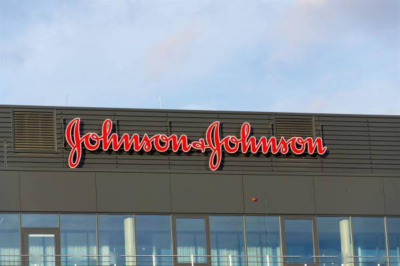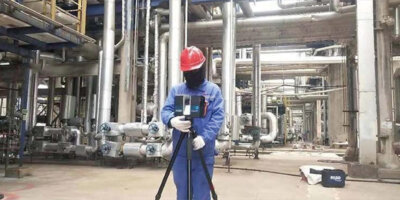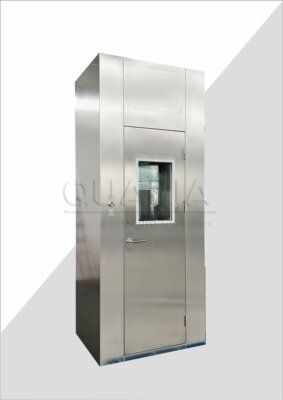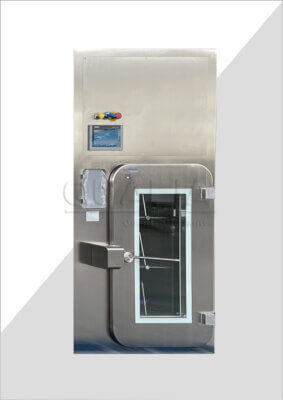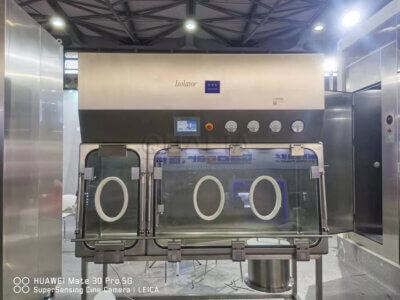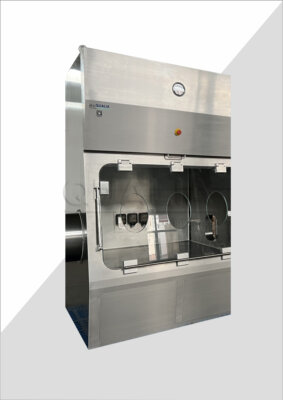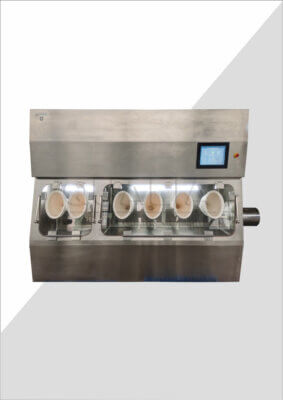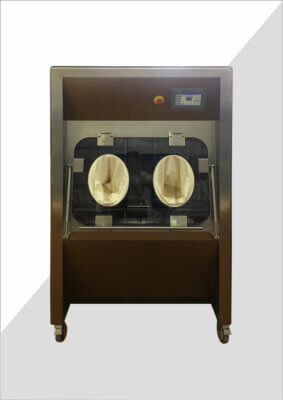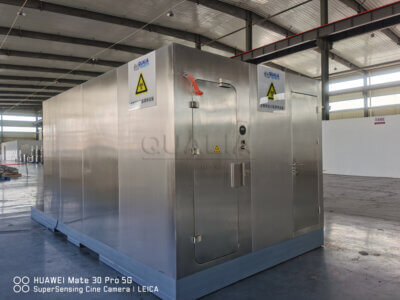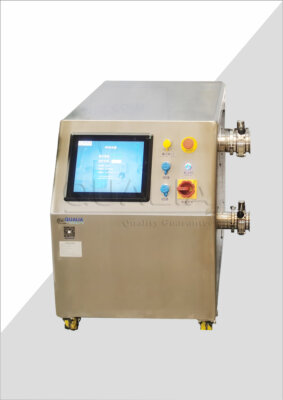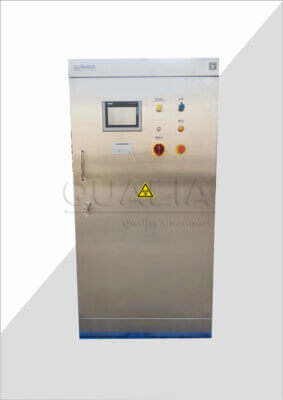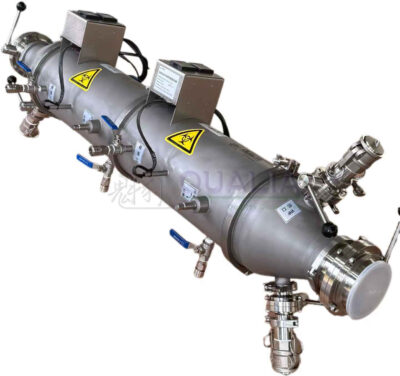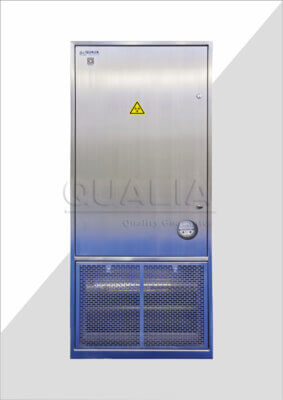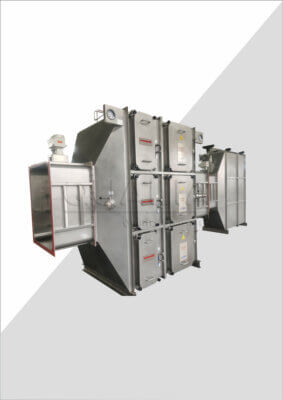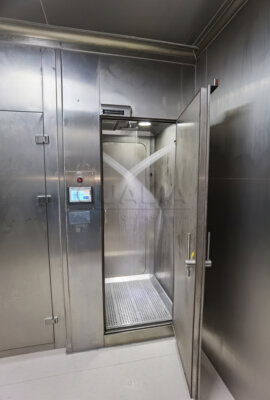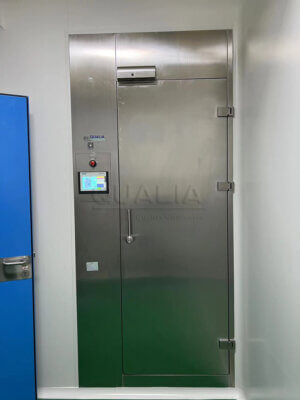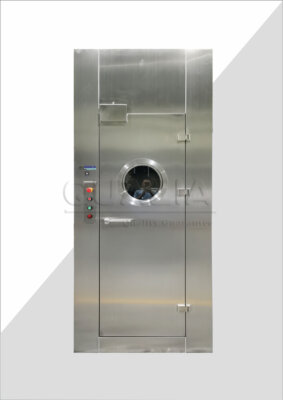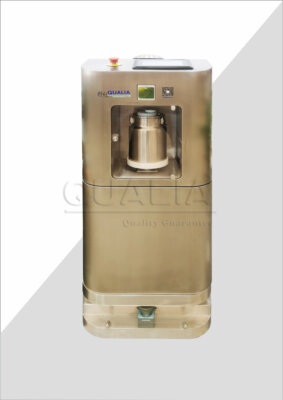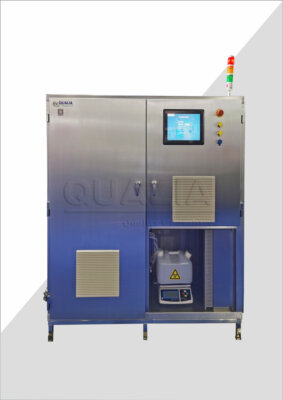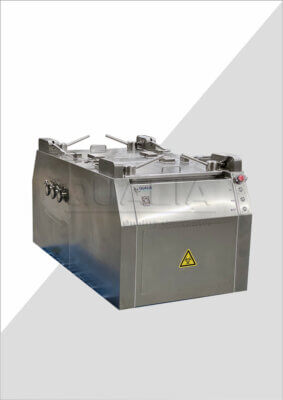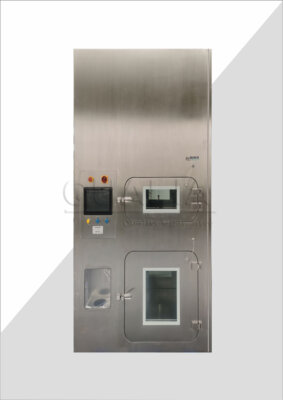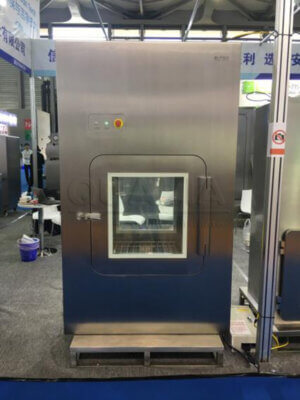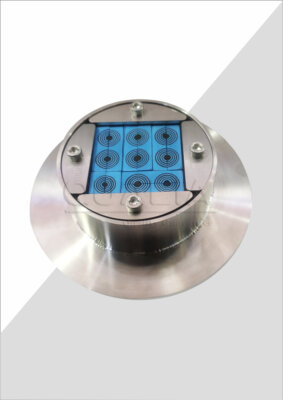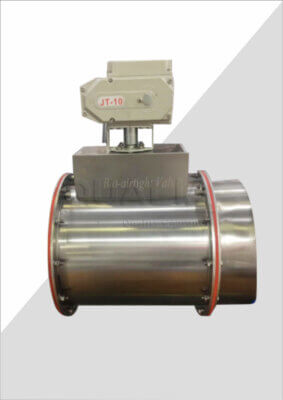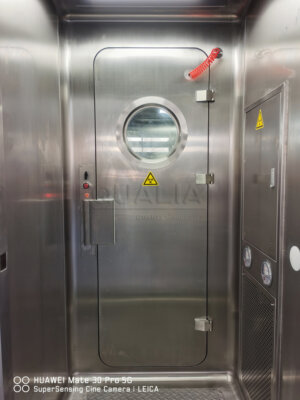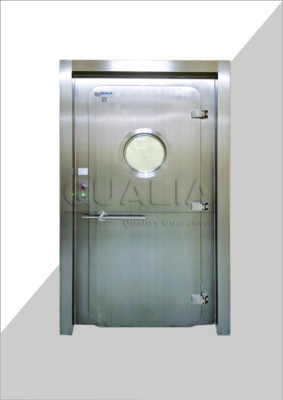In the world of pharmaceutical manufacturing, maintaining a sterile environment is paramount to ensuring the safety and efficacy of drugs. One of the most critical components in achieving this goal is the Closed Restricted Access Barrier System, or cRABS. These sophisticated systems play a crucial role in isolating the manufacturing process from potential contaminants, making them indispensable in the production of sterile pharmaceuticals. As the demand for high-quality, contamination-free drugs continues to grow, so does the importance of reliable cRABS manufacturers and suppliers.
The pharmaceutical industry relies heavily on cRABS to maintain the integrity of their production processes. These systems create a controlled environment that minimizes the risk of microbial contamination, protecting both the product and the operators. With stringent regulations governing pharmaceutical manufacturing, companies are constantly seeking innovative solutions to meet and exceed these standards. This has led to a competitive market of cRABS manufacturers, each striving to offer cutting-edge technology and superior quality.
As we delve into the world of cRABS manufacturing, we'll explore the top players in the industry, their unique offerings, and the innovations that set them apart. From established giants to emerging innovators, these companies are shaping the future of sterile pharmaceutical production. We'll examine their technologies, manufacturing capabilities, and commitment to quality, providing insights into why they're considered leaders in the field.
The global market for cRABS is expected to reach $XX billion by 2025, driven by increasing demand for sterile pharmaceutical products and stringent regulatory requirements.
What Makes a Top cRABS Manufacturer Stand Out?
When it comes to selecting a cRABS manufacturer, pharmaceutical companies must consider a multitude of factors. The reputation of the manufacturer, the quality of their products, and their ability to meet specific requirements are all crucial considerations. Top cRABS manufacturers distinguish themselves through their commitment to innovation, adherence to regulatory standards, and ability to provide customized solutions.
These industry leaders invest heavily in research and development, constantly pushing the boundaries of what's possible in sterile manufacturing. They understand that each pharmaceutical company has unique needs, and they strive to offer flexible, adaptable systems that can be tailored to specific production processes. Moreover, they provide comprehensive support services, from initial consultation and design to installation and ongoing maintenance.
Top cRABS manufacturers also prioritize sustainability and energy efficiency in their designs. As the pharmaceutical industry becomes increasingly conscious of its environmental impact, manufacturers that can offer eco-friendly solutions without compromising on performance are highly sought after.
Leading cRABS manufacturers report an average of 30% reduction in energy consumption in their latest models compared to previous generations.
| Feature | Importance | Industry Average |
|---|---|---|
| Sterility Assurance Level | Critical | 10^-6 |
| Energy Efficiency | High | 20-30% improvement |
| Customization Options | High | 5-7 options |
| Compliance with GMP | Critical | 100% |
How Does QUALIA Compare to Other cRABS Manufacturers?
QUALIA has emerged as a formidable player in the cRABS manufacturing arena. Known for their innovative approach and commitment to quality, QUALIA has been making waves in the industry with their state-of-the-art cRABS solutions. Their systems are designed with a focus on user-friendliness, efficiency, and adaptability, making them a favorite among pharmaceutical companies of all sizes.
One of QUALIA's key strengths lies in their use of advanced materials and cutting-edge technology. Their cRABS systems incorporate the latest advancements in barrier technology, ensuring the highest level of sterility assurance. Additionally, QUALIA's systems are designed with energy efficiency in mind, helping pharmaceutical companies reduce their carbon footprint without compromising on performance.
QUALIA also stands out for their comprehensive customer support. From initial consultation to ongoing maintenance, they offer a level of service that goes beyond mere equipment supply. Their team of experts works closely with clients to understand their specific needs and design customized solutions that optimize their manufacturing processes.
QUALIA's latest cRABS model has shown a 40% increase in production efficiency in client trials, surpassing industry standards.
| Feature | QUALIA | Industry Average |
|---|---|---|
| Energy Efficiency | 35% improvement | 20-30% improvement |
| Customization Options | 10+ options | 5-7 options |
| Customer Support | 24/7 global support | Business hours support |
| Installation Time | 20% faster | Standard |
What Innovations are Driving the Future of cRABS Manufacturing?
The world of cRABS manufacturing is constantly evolving, driven by technological advancements and changing industry needs. Leading manufacturers are investing heavily in research and development to stay ahead of the curve. Some of the most exciting innovations in this field include the integration of artificial intelligence and machine learning, advanced robotics, and improved barrier materials.
Artificial intelligence is being used to optimize cRABS operations, predicting maintenance needs and adjusting parameters in real-time for optimal performance. This not only improves efficiency but also enhances the overall reliability of the systems. Advanced robotics are being incorporated to further minimize human intervention in sterile environments, reducing the risk of contamination.
New barrier materials are also being developed, offering improved protection against contaminants while being more sustainable and cost-effective. These materials are not only more effective at maintaining sterility but also contribute to the overall energy efficiency of the systems.
Industry reports suggest that AI-integrated cRABS systems can reduce operational costs by up to 25% while improving sterility assurance levels.
| Innovation | Adoption Rate | Projected Impact |
|---|---|---|
| AI Integration | 30% of new systems | 25% cost reduction |
| Advanced Robotics | 40% of new systems | 50% reduction in human intervention |
| New Barrier Materials | 60% of new systems | 15% improvement in sterility assurance |
How Do Regulatory Standards Influence cRABS Manufacturing?
The pharmaceutical industry is heavily regulated, and these regulations have a significant impact on cRABS manufacturing. Regulatory bodies like the FDA and EMA set stringent standards for sterile manufacturing, and cRABS manufacturers must ensure their systems meet or exceed these requirements.
Top cRABS manufacturers stay ahead of regulatory changes, often exceeding current standards to anticipate future requirements. They work closely with regulatory bodies and industry associations to contribute to the development of new standards and best practices. This proactive approach not only ensures compliance but also positions these manufacturers as industry leaders.
Regulatory standards also drive innovation in cRABS manufacturing. As requirements become more stringent, manufacturers are pushed to develop new technologies and improve existing ones. This results in continual improvements in sterility assurance, operator safety, and overall system performance.
A survey of pharmaceutical companies revealed that 85% consider regulatory compliance as the top factor when choosing a cRABS manufacturer.
| Regulatory Body | Key Focus Areas | Impact on Manufacturing |
|---|---|---|
| FDA | Sterility Assurance, Data Integrity | High |
| EMA | Environmental Monitoring, Operator Safety | High |
| WHO | Global Standards, Accessibility | Medium |
What Role Does Customization Play in cRABS Manufacturing?
In the pharmaceutical industry, one size does not fit all. Different products, manufacturing processes, and facility layouts require tailored solutions. This is where customization in cRABS manufacturing becomes crucial. Top manufacturers understand this need and offer a high degree of flexibility in their systems.
Customization can range from minor adjustments to completely bespoke designs. It may involve modifying the size and layout of the system, integrating specific equipment, or developing unique barrier configurations. The ability to offer customized solutions sets leading manufacturers apart and allows pharmaceutical companies to optimize their production processes.
However, customization must be balanced with standardization to ensure consistency and compliance. Top manufacturers have developed modular systems that allow for customization while maintaining core components that have been thoroughly tested and validated.
Industry data shows that customized cRABS solutions can improve production efficiency by up to 35% compared to off-the-shelf systems.
| Customization Level | Percentage of Projects | Average Lead Time |
|---|---|---|
| Minor Modifications | 50% | 2-4 weeks |
| Significant Adaptations | 30% | 4-8 weeks |
| Fully Bespoke Designs | 20% | 8-12 weeks |
How Important is After-Sales Support in cRABS Manufacturing?
The relationship between a cRABS manufacturer and a pharmaceutical company doesn't end with the installation of the system. After-sales support plays a crucial role in ensuring the ongoing performance and longevity of cRABS. Top manufacturers distinguish themselves by offering comprehensive support services that go beyond basic maintenance.
These services typically include regular maintenance, emergency repairs, software updates, and operator training. Some manufacturers also offer remote monitoring and diagnostics, allowing them to identify and address potential issues before they become problems. This proactive approach minimizes downtime and ensures consistent performance.
Moreover, as pharmaceutical companies' needs evolve, they may require upgrades or modifications to their existing systems. Leading cRABS manufacturers provide support for these changes, helping companies adapt their systems to new requirements or expand their capabilities.
A study found that pharmaceutical companies with comprehensive after-sales support agreements reported 40% less downtime compared to those without such agreements.
| Service Type | Adoption Rate | Impact on System Uptime |
|---|---|---|
| Regular Maintenance | 95% | 15% improvement |
| Remote Monitoring | 60% | 25% improvement |
| Operator Training | 80% | 20% improvement |
| Upgrade Support | 70% | 30% improvement |
What Does the Future Hold for cRABS Manufacturing?
As we look to the future, the field of cRABS manufacturing is poised for exciting developments. Emerging technologies like 3D printing, advanced materials science, and the Internet of Things (IoT) are set to revolutionize how these critical systems are designed, manufactured, and operated.
3D printing technology could allow for more complex and efficient barrier designs, as well as faster prototyping and customization. Advances in materials science may lead to new barrier materials that offer superior protection against contaminants while being more sustainable and cost-effective. The integration of IoT capabilities could enable real-time monitoring and adjustment of cRABS systems, further enhancing their performance and reliability.
Additionally, as the pharmaceutical industry continues to evolve, with trends like personalized medicine and continuous manufacturing gaining traction, cRABS manufacturers will need to adapt their offerings to meet these new challenges. This could lead to more flexible, modular systems that can be quickly reconfigured for different production needs.
Industry experts predict that by 2030, over 70% of cRABS systems will incorporate IoT capabilities for real-time monitoring and optimization.
| Future Trend | Projected Adoption by 2030 | Potential Impact |
|---|---|---|
| 3D Printed Components | 50% | 30% reduction in lead times |
| Advanced Barrier Materials | 80% | 40% improvement in sterility assurance |
| IoT Integration | 70% | 50% reduction in unplanned downtime |
| Modular Design | 60% | 35% improvement in adaptability |
In conclusion, the world of cRABS manufacturing is a dynamic and crucial sector of the pharmaceutical industry. As we've explored, top manufacturers distinguish themselves through innovation, customization, regulatory compliance, and comprehensive support services. QUALIA has emerged as a leader in this field, offering cutting-edge solutions that meet the evolving needs of the industry.
The future of cRABS manufacturing looks bright, with new technologies and approaches on the horizon. As pharmaceutical companies continue to push the boundaries of what's possible in drug development and manufacturing, cRABS manufacturers will play a pivotal role in ensuring these advancements can be realized in a safe, sterile environment.
For pharmaceutical companies looking to stay at the forefront of sterile manufacturing, choosing the right cRABS manufacturer is crucial. By considering factors like innovation, customization capabilities, regulatory compliance, and after-sales support, companies can ensure they're partnering with a manufacturer that will support their success both now and in the future.
As the industry continues to evolve, one thing remains clear: the importance of cRABS in pharmaceutical manufacturing will only grow. Companies that invest in high-quality, innovative Top cRABS manufacturers and suppliers will be well-positioned to meet the challenges and opportunities that lie ahead in the world of sterile pharmaceutical production.
External Resources
The Crab Broker – Specializes in supplying Genuine Alaska King Crab and Snow Crab to restaurants, resorts, and retailers. The site details their processing methods, sustainability practices, and traceability of their products.
CRAB Wholesale Seafood Suppliers and Distributors – A directory of companies that are wholesale suppliers of crab and crab products, including international suppliers from various countries.
Crab Suppliers – Thomasnet – Lists manufacturers and suppliers of crab products in the USA, including companies like Handy Crab Company, Mariner Seafood LLC, and Slade, Gorton & Co., Inc.
Global Sources: King Crab Suppliers – Provides a list of wholesale king crab suppliers, manufacturers, and distributors, primarily from China and other international locations.
Happy Crab Seafood, Inc. – A supplier of Dungeness Crab and other seafood products, known for their high-quality exports.
Evergreen Seafood Pte Ltd – Specializes in sourcing, packing, processing, and supplying a variety of live, chilled, dry, and frozen seafood, including Brown Crab.
Adelphia Seafood – A manufacturer of seafood products, including lobster, crab, shrimp, clams, oysters, and various fish varieties, offering fresh and frozen options.
Great Northern Products Ltd. – A supplier of various seafood products, including crab, shrimp, squid, prawns, and other shellfish, serving wholesale distributors, restaurants, and retail markets.
Related Contents:
- cRABS Material Transfer: Ensuring Sterile Product Flow
- cRABS in Sterile Drugs: Enhancing Aseptic Production
- Custom cRABS: Tailored Solutions for Pharma Needs
- Vaccine Production with cRABS: Ensuring Sterility
- Integrating cRABS: Upgrade Your Pharma Production Line
- cRABS Cost Analysis: ROI in Pharmaceutical Production
- Top 5 Benefits of cRABS in Pharma Manufacturing
- cRABS Waste Management: Safe Disposal in Sterile Pharma
- cRABS Flexibility: Advantages Over Rigid Isolators

